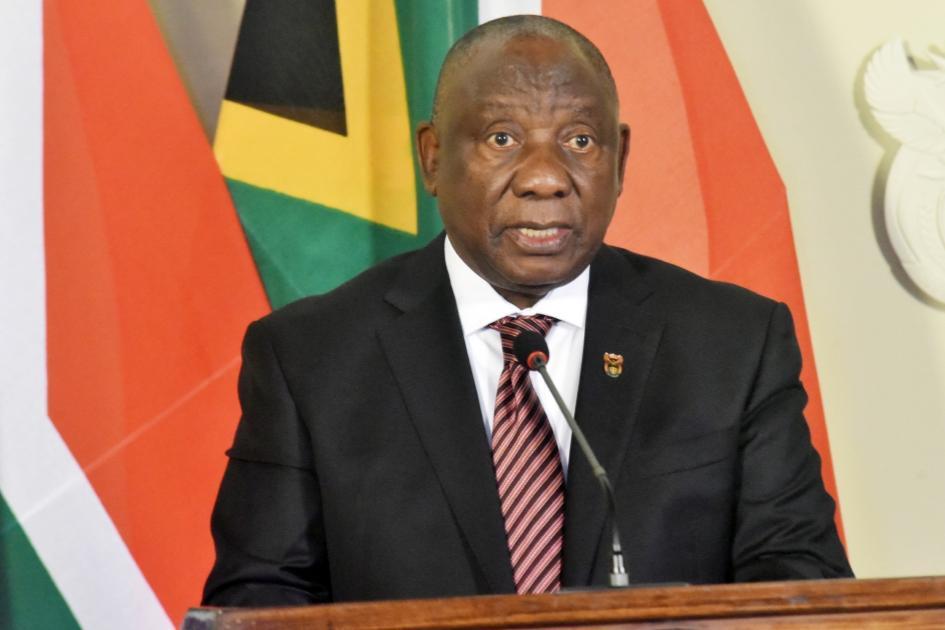Africa-Press – South-Africa. South Africa stands at a pivotal moment in its journey towards a secure, democratic and corruption-free future. The recent allegations by Lt-Gen Nhlanhla Mkhwanazi concerning the infiltration of criminal syndicates into the national intelligence and security forces, the National Prosecuting Authority (NPA), the judiciary and senior politicians have sent shock waves through the nation. These claims paint a dire picture of systemic collusion at the highest levels of governance, threatening state integrity, security and the rule of law.
In this context, President Cyril Ramaphosa’s appearance as a witness at the judicial commission of inquiry would be of profound importance. As president and head of state Ramaphosa’s willingness to testify would, for example, signal a personal commitment to transparency and accountability at the highest level of government. This could rebuild trust in public institutions that have suffered perceptions of impunity and inaction.
The credibility of any commission depends on both the seriousness of its proceedings and the stature of its witnesses, especially when dealing with allegations involving senior state officials. Ramaphosa’s testimony would demonstrate executive buy-in and elevate the commission’s public standing. It would also underscore that even the presidency is not above scrutiny, affirming the commission’s independence and seriousness.
On the other hand, when the nation’s president testifies, it could set a standard for all other implicated senior officials to follow suit, ensuring the commission isn’t reduced to a “talk-shop” or “dead end”.
A strong testimony from the president also has the potential to help ensure the commission’s findings and recommendations are taken seriously by the public and parliament and will lead to future prosecutions or reforms.
There is also the possibility that the president’s example could pressure other branches of government to co-operate with investigations, resulting in possible suspensions, prosecutions or institutional reforms.
Meanwhile, Ramaphosa’s willingness to testify at the commission could be influenced by political pressures or personal gain, as is often the case with high-profile political figures involved in sensitive inquiries.
Some considerations point to this possibility: as leader of the ruling party, which now faces serious existential challenges including managing its tumultuous relationship with the co-governing DA, Ramaphosa faces significant dynamics within his party.
There has also been accusations from the DA and opposition parties about Ramaphosa using his office for calculated political manoeuvres, especially around election periods, to influence outcomes in favour of the ANC — which could imply political motivation behind some of his public actions, including testimony or public statements.
The state capture commission showed Ramaphosa appearing and giving testimony under circumstances where political considerations and timings were scrutinised, suggesting that his testimony served to manage public perception and political fallout rather than solely aimed at transparency. At that commission Ramaphosa stated that the ANC was accused number one. It therefore follows that if that commission, as it did, found that there was indeed state capture, the ANC is also somehow the culprit with almost a hundred of its leaders and members being cited to have some or other case to answer.
Despite this, the integrity commission of the ANC has found none of these people in the wrong. Instead Ramaphosa has elevated some of them into his cabinet. The most ironic was the appointment of Gwede Mantashe, who is highly implicated, being made acting minister of police. These developments have made a total mockery of the commission that costs the taxpayer more than R1bn. How can such a circus be avoided under the Madlanga commission?
In this context the ball is in Ramaphosa’s court to give credence to both his testimony and the commission by:
addressing his knowledge, actions and decisions concerning the alleged infiltration and how government oversight failed or succeeded in that regard,not only chronicling events but acknowledging shortcomings and detailing concrete measures;
ensuring his testimony must be supported by credible documentation, corroboration by other witnesses, and clear timelines will lend weight to his testimony and diminish suspicions of stonewalling or political manoeuvring;
acknowledging what the executive knew or missed, as well as outlining remedial steps — showing the commission and the public that accountability is possible, no matter the political cost;
Outlining an action plan to act on the commission’s recommendations such as internal disciplinary action or dismissals where he can exercise his discretion to reward or punish as well as institutional reforms.
Strong testimony from the president addressing these issues will help ensure that the commission’s findings and recommendations are taken seriously by the public.
In essence, Ramaphosa’s testimony is crucial for legitimising the commission, ensuring its work is seen as meaningful rather than procedurally empty. On the other hand, the credence of his testimony rests on its supporting evidence and demonstrable willingness to face uncomfortable truths and drive reform.
These are the factors that will ultimately strengthen the investigation’s capacity to root out criminal syndicate influence and restore public trust in the country’s security and justice apparatus. Of course, all this assumes Ramaphosa himself is not implicated in any of the wrongdoing because if he is, the whole state will come crumbling down.
Source: TimesLIVE
For More News And Analysis About South-Africa Follow Africa-Press






